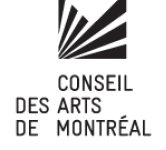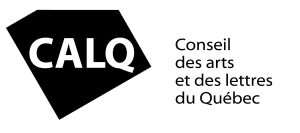5. Sums Reimbursed
| Apprentice Member | Professional Individual or Corporate Member |
|---|---|
| Classes, workshops, and subscriptions: 40% of the cost (before taxes) Up to a maximum of $500 per year, subject to the financial availability of the Program. | Classes, workshops, and subscriptions: 40% of the cost (before taxes) Up to a maximum of $700 per year, subject to the financial availability of the Program. |
The RQD reserves the right to modify the reimbursement scales throughout the year, depending on the financial resources available.
6. Reimbursement Procedure
6.1 Envelope distribution
- Please note that the training support program envelope will now be subdivided on a monthly basis to ensure greater equity and availability of funds throughout the fiscal year.
- Proportional to our membership, the envelope is divided 80% to individual and corporate professional members and 20% to individual trainee members.
- Requests are reviewed monthly on a first-come, first-served basis.
- The RQD does not guarantee that all members admitted to the program will obtain the maximum amount authorized each year.
6.2 Eligibility of receipts
- Receipts must be official, itemized, and validated by the providing organization or professional.
- Fees for fitness assessments, studio rentals or training equipment are not reimbursable.
- Reimbursement requests must be submitted within 3 months of the training payment date.
- Please note that debit or credit card statements are not accepted as receipts.
| RQD | MEMBER |
|
|
If a claim is not processed due to insufficient funds, it can be resubmitted the following month.
6.4 Claim processing
The RQD will confirm receipt of your claim via email within 15 days. The RQD then forwards reimbursements, by direct deposit only, on the Friday of the first week of the month following the claim.
Any unused funds as of June 30 will be rolled over to the next fiscal year.
CNESST coverage for training injuries
As per the 2006 regulation under the Act respecting occupational health and safety, performers admitted to the Dance Training Support Program are automatically covered by CNESST for injuries sustained during training outside of an employment contract, performers admitted to the Dance Training Support Program are automatically covered by the CNESST in the event of injuries sustained during training that is not part of an employment contract. Certain conditions apply.
CNESST coverage under the Dance Training Support Program is available only to performers and does not extend to choreographers or rehearsal directors.
To benefit from coverage, dancers must be members of the RQD and admitted to the Training Support Program, after applying via the RQD membership form (see 2 – Eligibility requirements).
Training sessions in which performers are covered must meet the following strict conditions:
- Specialized dance training
- Supervised training
- In-person training conducted in Quebec.
Please note: Online training sessions and face-to-face training sessions outside Quebec are not covered.
What to do in the event of injury
An interpreter who is injured in training must:
- Inform the person supervising his/her class or training and designate a witness.
- Immediately notify the RQD by e-mail at info@quebecdanse.org to open a CNESST file.
- Consult a physician within 48 hours of the incident. The doctor must provide a CNESST-identified medical certificate and a prescription for treatment. Do not send anything directly to the CNESST before speaking to the RQD!
The Dance Training Support Program receives financial support from the Canada Council for the Arts, the Conseil des arts de Montréal and the Conseil des arts et des lettres du Québec.


[1] Activities that took place in an academic or amateur context will not be recognized in the calculation of eight performances. [2] A performance is deemed professional when it is presented by artists recognized as professionals by peers, in an event also recognized as professional. [3] Due to the closure of performance venues between 2020 and 2022, the RQD accepts performances over a 5-year period instead of 2 years, not consecutive. [4] Contracts canceled due to COVID-19 remain valid and may be submitted as supporting documentation. Promotional content (programs, posters, website excerpts, etc.) is not considered admissible evidence.

